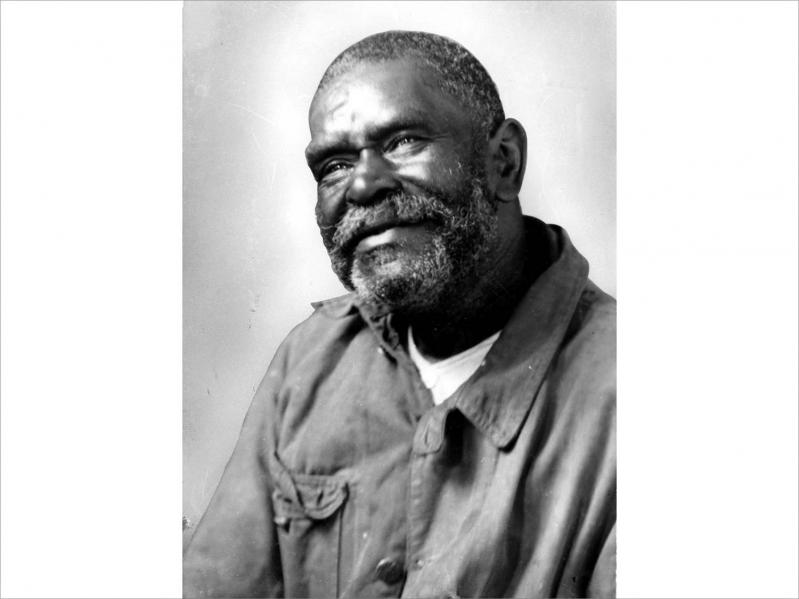In a small town, sometimes even a little change to a long-held routine is enough to make the front page of the local paper. Such was the case with Edward Thomas Banks (1861-1949), a sanitation worker for many years and a beloved figure here.
This 1941 portrait, courtesy of The East Hampton Star’s photo archive, captures Banks’s well-known and luminous smile, which was “so winning, indeed, that he never lacked friends or jobs.” His smile was so memorable it was mentioned in his obituary eight years later.
Banks came to the South Fork to work as a cook at the fish factory at Promised Land in 1886, before making a transition to sanitation. For much of the factory’s operation, many of the workers employed there were African-Americans from coastal Virginia and North Carolina, as was Banks, who hailed from Hampton, Va.
For 50 years, Banks used a horse-drawn wagon to collect refuse around East Hampton, until, in the late 1930s, he caved to prevailing trends and bought a truck. Banks was the last of the “junkmen” to make this switch, and it was notable enough to earn a big feature story on the front page of the May 29, 1941, issue of The Star.
His horses themselves were local characters in their own rights, known for being “angular,” the article said, and “serviceable: they didn’t always arrive quickly, but they usually arrived.”
Aside from his work, Banks was known for his marriage to Mariah Geneva Fowler Pharaoh (1848-1936), widow of Montaukett Chief David Pharaoh and mother of Princess Pocahontas Pharaoh.
Banks lived for another 13 years after his wife’s passing, during which he worked almost every day, despite his advanced age. According to his obituary, he tended to his duties as a neighborhood junkman until shortly before his death in 1949, when he left behind “many good friends” in the community.
Julia Tyson is a librarian and archivist in the East Hampton Library’s Long Island Collection.




